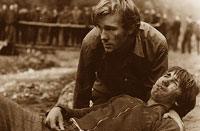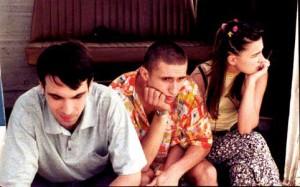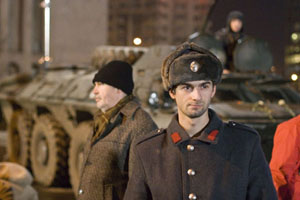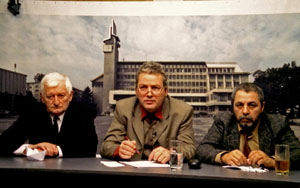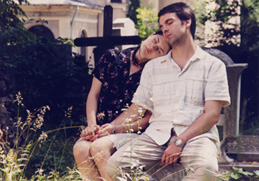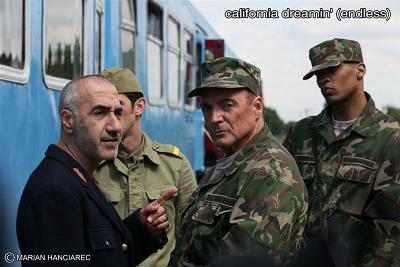ROMANIAN CINEMA ON THE EDGE
Watching the films coming out of Romania in the last few years, it is obvious that a new group of directors, screenwriters, and actors is hitting its stride. Many of the Romanian pictures that have received prizes at international film festivals were directed and scripted by people in their 20s and 30s; they are intense, gritty, low-budget productions, through which the unglamorous realities of the “transition” period are stared down. They focus on familiar characters in recognizable circumstances, in which Romanian audiences can see themselves. Tragedy, irony, and satire are all part of these young filmmakers’ moral and aesthetic arsenal.
The new Romanian cinema offers a critique of the socio-economic and human relations that obtain under the new, hybrid, capitalism. A number of recent films have dealt with mafia relationships that affect not only the economy but people’s private lives. Others are about the palpable misery of the not well connected lower classes—older people, but also youth and women drawn into prostitution or foreign marriages, all of whom can envisage few prospects for their futures. They focus as well on the decline in civility from the already dubious communist standards. Some directors have cast a critical eye on the communist era, and the passivity of Romanian society during those years.
The title of the series “Romanian Cinema on the Edge” alludes to various edges, first of all the edgy narratives and aesthetics that dominate these films, which were not designed to be comfortable. These are in-your-face stories that spare neither viewer nor characters. Despite the clever comedy in California Dreamin’, Occident, and 12:08 East of Bucharest, this is hardly a cinema of entertainment. These movies will make audiences squirm and feel “on the edge” right along with the personages on the screen.
There is also a generational edge, the marking of a generational boundary in Romanian cinema. We open the series with an example of the best of the older cinematography produced under communism, Lucian Pintilie’s The Reenactment. The young directors Cristi Puiu, Corneliu Porumboiu, Radu Muntean, Cristian Mungiu, and Cristian Nemescu have learned from their elders and collaborated with them, but they have very much turned their own corner. Their art is subject to a different set of cultural and economic conditions, and they and we view it from a new global vantage point.
The edge between documentary and fiction is often blurred in these films: several of the movies in the series look like documentaries and all serve as documents of Romanian society whether under communism or in more recent times. To quote the film critic Andrei Gorzo, “the new filmmakers are using the cinema as a tool to investigate reality with documentary-like specificity and moral depth. This belief—this sense of duty towards reality—comes through with a special, startling, clarity and fervor in the work of Puiu, … Porumboiu, and Mungiu.” This is also the fervor not to use film as propaganda.
The edge between east and west is a persistent theme in several of these movies, as is the edge or boundary—and transition—between historical periods. All the young filmmakers represented here are global creatures—as is Pintilie. Their films evince no complexes vis a vis “the West,” and they are at ease with the culture of the internet. Several of the featured movies confront Romania’s traditional obsession with the West, but only to unmask its folly. Viewed through the cameras of the young filmmakers, Romania these days looks more often like a third-world country than like the “Europe” of communist fantasies.
The edge between historical time-periods (pre-communism, communism, post-communism) is another persistent theme. In The Paper Will Be Blue the soldiers are inside the edge that is so blurry that it is indiscernible; California Dreamin’ is a working through—fifty some years later—of issues festering since World War Two. In the post-communist context, “the Americans are coming” may be several decades too late.
Finally this is cinema on the edge of well-deserved recognition, or just over the edge! The Palme d’Or at Cannes this year went to … 4 Months, 3 Weeks & 2 Days by Cristian Mungiu.
Irina Livezeanu
Series Curator
Associate Professor of History |
